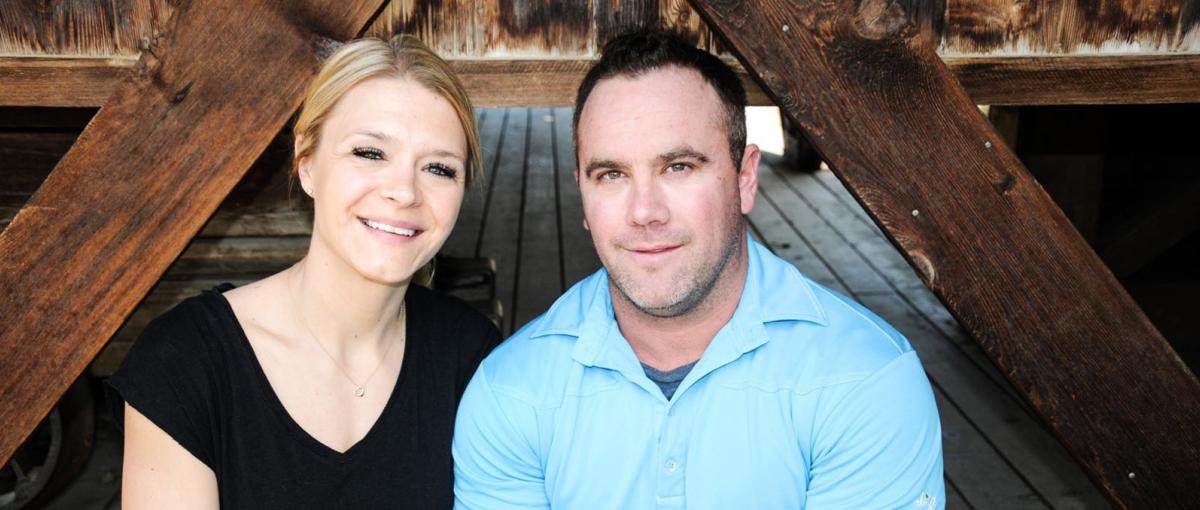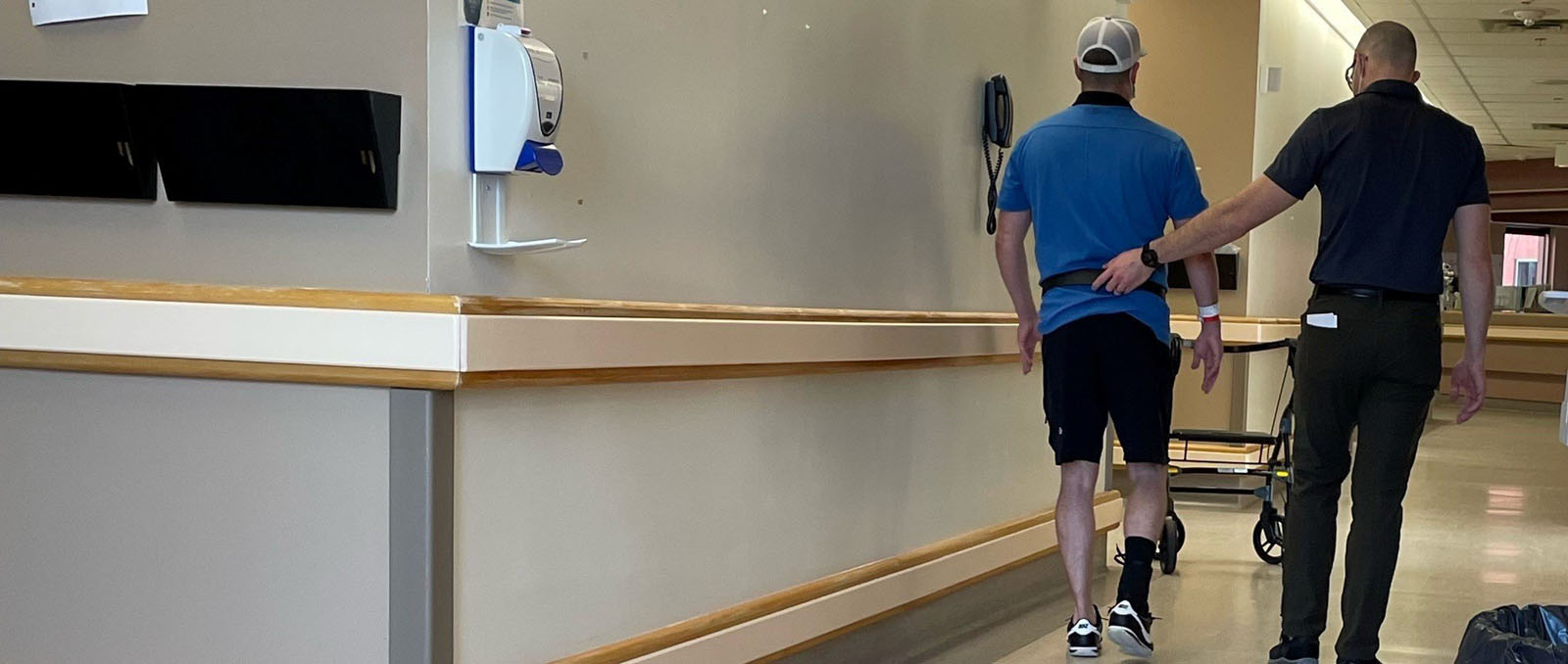Pilot program helps COVID-19 long haulers

March 3, 2022
By Karen Cho, Senior Communications Advisor, Covenant Health
When Justin Mohan contracted COVID-19 last April, the fit 40-year-old and 15-year veteran of the Camrose Police Service didn’t expect to still be recovering from the illness almost a year later.
Justin tested positive for the Alpha variant (also known as the U.K. variant) of the virus when he and his wife, Jessica, returned from a ski trip to British Columbia. While Jessica was ill for about 10 days before recovering, Justin’s health deteriorated. He had the chills and a fever and was briefly admitted to the hospital.
For months, his cognitive and physical abilities continued to decline. Following a visit to the post-COVID-19 clinic in Edmonton for patients who are past the acute phase of infection, it was determined that he needed to be hospitalized again. By then, Justin was using a cane to assist with walking because he was frequently losing his balance.
Justin isn’t alone. The World Health Organization estimates that between 10 and 20 per cent of people experience lingering symptoms of COVID-19 — also known as long COVID — after a confirmed diagnosis. The symptoms, which include fatigue, breathlessness and brain fog, may persist from initial illness or develop after recovery, and they can come and go or relapse over time.
In October 2021, Justin enrolled in a pilot program to help long-haul COVID-19 survivors at St. Mary’s Hospital in Camrose. That, says Jessica, was life-changing.
“I noticed incredible effort, knowledge and determination in investigating Justin’s symptoms and setting him up with a program that would help in his rehabilitation.”
“The doctors, nurses and therapists at St. Mary's were exceptional in helping Justin understand his post-COVID-19 symptoms. They gave him the tools to manage his physical limitations, fatigue and memory loss.”
The program, which the hospital piloted last September, is an evolution of the hospital’s early supported discharge (ESD) program, which offers in-home and virtual therapy to stroke survivors who have been referred from hospital upon discharge, says interim team lead Gail Elton-Smith.
“We’re using the same ESD concept, but the treatment is different.”
Justin’s program was tailored to include an occupational therapist, physical therapist and therapy assistant who came to his home to help with his recovery. “They were making goals for him to manage his energy levels because you can become sick if you’re pushed too hard,” says Jessica, adding that Justin’s sessions became more challenging as his strength improved. He received additional help from a speech pathologist, social worker and recreational therapist virtually through Zoom.

“There’s been a lot of hard work put in by a team of people to make him better. I am just grateful to have been provided with this support,” says Jessica. Initially, she put her full-time teaching job on hold to take care of her husband because it didn’t feel safe for him to be home alone.
“I did not feel I had the option to return to work because of the situation we were in and how he constantly fell and forgot even the simplest of things, such as whether he brushed his teeth or took his meds,” says Jessica. She recently returned to the school where she teaches Grade 9 and chemistry.
Almost a year since contracting COVID-19, Justin can now walk unassisted. He is still working to improve his memory using strategies learned from the ESD team, such as writing notes and recording conversations.
He says the hardest part of his journey has been not being able to work and function as he normally would. “I missed communicating with my family and friends, and I missed my job.” With the progress that he’s made in the last few months, he is planning to return to work at the police force in the coming months.
Although Justin always believed he would get better, he says the experience has made him more introspective about his mental and physical well-being. “People should not take their health for granted. COVID-19 can affect anybody — healthy people, sick people, young people and the elderly. Your life is forever changed.”
Like Jessica, Justin is very grateful to Gail and her team. “I have immense respect for those individuals in the healthcare profession.”
Plans are underway to expand the pilot program to a virtual model so that others like Justin can access the care they need for their recovery.
“For the first time, we will be able to reach areas of the province to receive specialized rehab care,” says Gail. “It’s an exciting opportunity to be able to expand our geographical reach and provide this to more people in their homes. The possibilities are endless.”
On March 5, 2020, Alberta officially logged its first case of COVID-19. To date, there have been 3,912 deaths related to the illness.